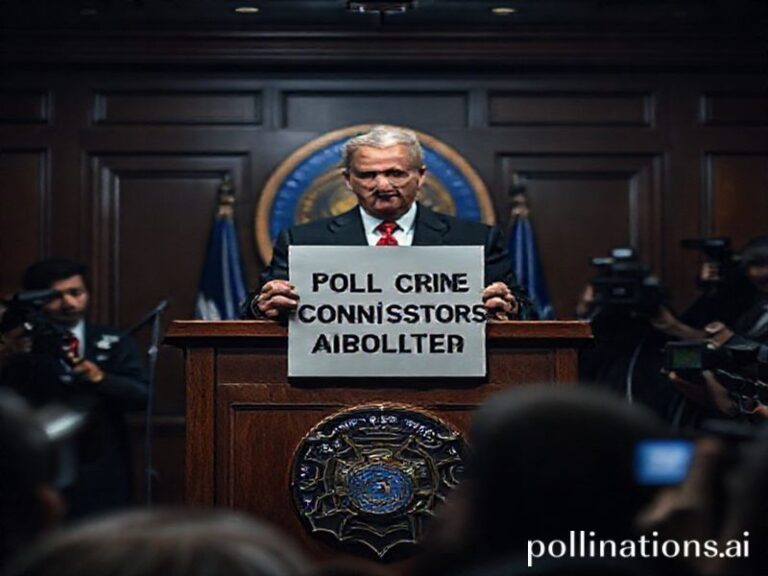Fulham vs Leeds: 90 Years of Globalized Heartbreak, Now Streaming Worldwide
Fulham vs Leeds: A Timeline of Mutual Self-Destruction, Now Broadcasting Worldwide
By Our Man in the Departure Lounge
London, 14:03 GMT – Somewhere above the Atlantic, a Singaporean hedge-fund analyst toggles between two tabs: one tracking the Nikkei’s latest swan dive, the other a grainy stream of Fulham vs Leeds from 2003. He isn’t nostalgic; he’s hedging existential dread with 90 minutes of lower-table slapstick. Because when the world’s on fire, nothing comforts like watching two English clubs repeatedly invent new ways to miss Europe and still call it ambition. Below, a chronology of that beautiful, doomed pas de deux.
1930s – Pre-War Colonial Footnote
The sides first meet while Britain still owns half the planet. Leeds’ kit resembles a tea-stained map; Fulham’s is the colour of bureaucracy. Nobody outside Yorkshire or the Thames notices, but somewhere in Lagos a clerk files the result next to grain prices, proving football results have always been the original global metadata.
1970s – Oil Crises & Second Division Schadenfreude
Both clubs yo-yo like a drunk broker on Black Wednesday. Leeds briefly flirt with the top flight; Fulham flirt with extinction. Somewhere in newly independent Abu Dhabi, officials take notes: “Emotional volatility = brand loyalty. File under ‘future soft-power opportunities.’”
1999-2001 – The Global Village Discovers Relegation
Sky Sports buys the rights, beams the misery to 57 countries. In a Seoul PC bang, teenagers discover that watching Lee Bowyer lose the plot is cheaper than therapy. Fulham spend £30 million to get promoted; Leeds spend £100 million to get relegated. The IMF quietly updates its definition of “unsustainable debt.”
2010 – The Third-Party Ownership Derby
Both clubs are now owned by entities whose mailing addresses are PO boxes in Delaware and the Cayman Islands. On the pitch, the match ends 2-2; off it, shell companies trade future image rights like Pokémon cards. A bemused customs officer in Panama wonders why a Championship fixture is routed through his ledger.
2018 – Streaming Apocalypse Edition
Amazon Prime buys the fixture, slaps it between Bosch and a documentary on fungal intelligence. Viewership spikes in Lagos, Mumbai, and a U.S. Navy submarine under the Arctic. Somewhere, a Belarusian bot farm assigns the hashtag #FulLeed because brevity is the soul of engagement metrics.
2020 – The Pandemic Behind Closed Doors
Empty stands, canned crowd noise, existential dread piped in Dolby Atmos. Leeds win 4-3; both defences social-distance from competence. Epidemiologists use the match to model aerosol dispersion of disappointment. The WHO classifies the final scoreline as “mildly contagious.”
2022 – The Crypto Shirt Sponsor Derby
Fulham’s shirts now advertise a coin named after a small marsupial; Leeds tout a token that promises “NFT-based loyalty.” By halftime both coins are down 40%. A teenager in Buenos Aires mines enough resentment to pay for three semesters of university. Capitalism applauds, then rug-pulls.
2023 – The Saudi Sports-Washing Spectacular
The match is part of a “winter festival” in Riyadh. Temperature: 38°C. Attendance: 68,000 expats promised free air-conditioning. Leeds lose on penalties; Fulham’s keeper is later gifted a falcon, which immediately defects to PSG. Human-rights observers note the bird enjoys greater freedom of movement than most migrant workers.
2024 – The Existential Return to Craven Cottage
Back in London, both clubs sit mid-table, mathematically safe, spiritually bankrupt. VAR reviews every blade of grass; the global feed buffers in Ulan Bator. Final score 1-1, greeted by the same collective shrug from Dakar to Detroit. Somewhere a Tibetan monk live-tweets “samsara confirmed.”
Epilogue – The Universe Expands, The Fixture Remains
From the International Space Station, astronauts report a faint green rectangle over West London every other Saturday. Scientists attribute it to reflected angst. Meanwhile, streaming services queue a 12-part docuseries: “Fulham-Leeds: A Love-Hate Brand Synergy.” Merchandise ships in biodegradable packaging, irony sold separately.
Because in the end, Fulham vs Leeds isn’t just two sets of fans enduring déjà vu. It’s the entire planet watching capitalism, geopolitics, and human frailty run endless overlaps down the wing, only to sky the final cross into Row Z. And we wouldn’t have it any other way—mostly because canceling the subscription feels like too much effort.







